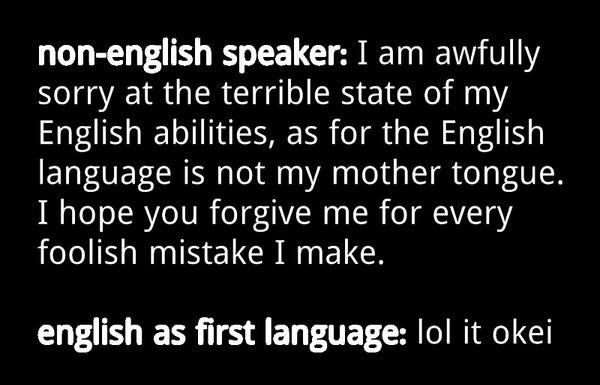The orthography - the written language - is different from the spoken language. The written language is based off of the spoken language, and proficiency is measured based on the spoken language. Being able to use the spoken language in its written form is ultimately secondary; if you can write in a language but you cannot speak it, you will have a far harder time than the other way around. For that matter, the vast majority of the languages in the world have no written form of any kind anyway.
This is a different argument than that with which you started. You initally said that a native speaker is by definition the most fluent, regardless of
any other factor. I responded by saying that such a definition is useless, and you went on to distinguish between fluency in written and spoken language as if it was somehow relevant.
Regardless of test results, a non-native speaker of a language can NEVER reach the proficiency levels of a native speaker without spending the majority of their life only communicating in that language and doing so with native speakers.
By this logic a native English speaker who is constantly using malapropisms because they are unaware of the actual meanings of half the words they use is still a more fluent speaker than someone who speaks perfectly with no errors in semantics or syntax. I maintain my position that this definition of fluency is worthless.
Also, I would like to point out the following:
I live in
a city where 50% of the population are immigrants from other countries and 40% are less than two generations away from immigrant ancestors, a great many of which primarily speak languages other than English. The city is so multilingual that most government documents are offered in 60+ languages and one comedian once said that this was the city where a traffic collision results in an argument in nine languages. In this city, the country's second official language, French, is spoken natively by fewer people than Cantonese, Italian, Mandarin, other Chinese dialects, Punjabi, Spanish, Tagalog, Urdu, Tamil, Portuguese, Persian, Russian, Polish, and Arabic
each. And yet when you actually go to
meet these people, aside from some of the elderly or a few recluses in Chinatown and Greektown, their English is indistinguishable from someone whose ancestors came to the country before it
was a country. Not even an accent (unless they feel like it).
So from my personal experience I know that your statement that
a non-native speaker of a language can NEVER reach the proficiency levels of a native speaker without spending the majority of their life only communicating in that language
is simply false.
If your definition is such that they
still have inferior language skills because it is hardcoded in the definition, then it is ultimately tautological; they are worse speakers because they are defined as such. It is not only pointless but also uncomfortably provincial.
